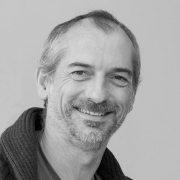
Copyright : Laboratoire LEMAR- 2018
Philippe Soudant, Denis De la Broise
European project
Interreg
Start Date
03/04/2025
End Date
03/04/2025
ALG-AD addresses reuse of waste to generate products for a sustainable economy, reducing pollution risk and dependence on imported material resources.
NWE, a densely populated intensive agricultural area, contributes disproportionately to food and farm waste produced in the EU each year. To reduce food & farm waste, anaerobic digestion (AD) is used (2000 AD facilities in NWE). AD converts waste to biogas energy and a liquid nutrient rich digestate (NRD). Each AD plant produces 4,000-70,000t/y of NRD (2-6 kg nitrogen/t NRD).
Most NRD is returned to land as a biofertiliser. But, strict limits are imposed with Nitrate Vulnerable Zones: NVZs (European Nitrate Directive 91/676/EEC) restricting return of NRD to land to prevent eutrophication pollution. Much of NWE land falls within NVZs (58% in UK;100% in Brittany & Flanders) creating an excess NRD. Dealing with excess NRD is an acute worsening issue and solutions are needed.
ALG-AD provides a solution combining algal and AD technology to reduce and reuse NRD converting nutrients to create algal biomass for sustainable animal feeds. Technology will be collaboratively implemented and tested in 3 distinct ‘real-life conditions’ in Devon (UK), Brittany (FR) and Flanders (BE). Sites reflect the heterogeneity of NWE from ‘predominantly rural remote’ to ‘predominantly urban’ (OECD 2011) and different types of biodegradable waste and in different regulatory landscapes. Demonstration to stakeholders and Decision Support Tools will enable take-up.
Roll-out with AD retrofit would achieve market uptake for treatment of 300,000 t/y of NRD processing after 5 years and 6 million t/y after 10 y, resulting in reduced nitrogen losses to the environment by recovery of resp.1,500->30,000t active N/y which otherwise would pollute NVZs. Retrofitting results in c.300,000 t/y algal product (dry weight) for animal feed, replacing imported protein sources & improving food security.

 VERTIS
Scroll to top
VERTIS
Scroll to top